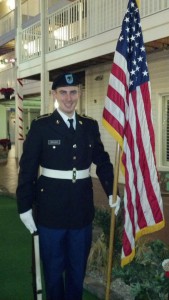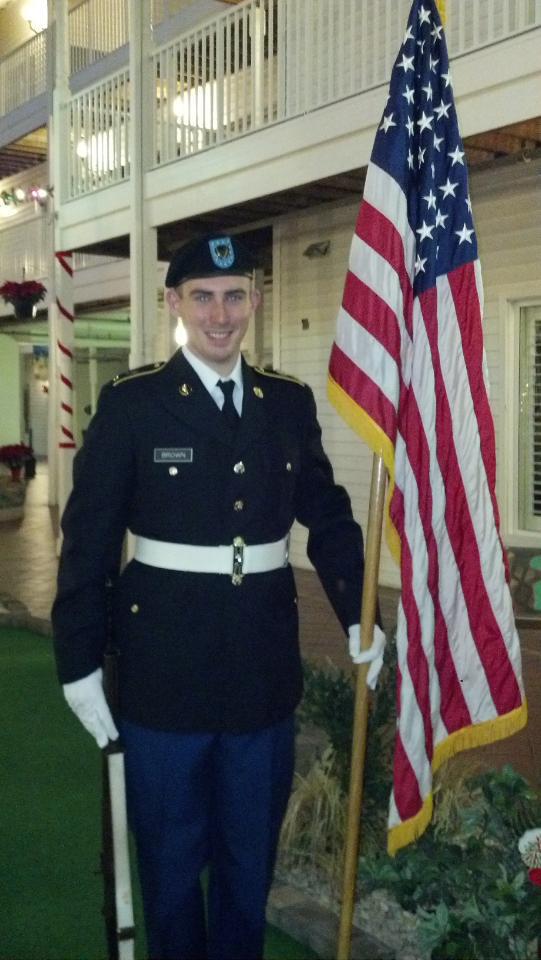 Two years of voluntary physical training, inspections and early morning drills led USF St. Petersburg junior Kristofer Brown to rotating leadership roles in the Reserved Officer’s Training Corps program at USFSP.
Two years of voluntary physical training, inspections and early morning drills led USF St. Petersburg junior Kristofer Brown to rotating leadership roles in the Reserved Officer’s Training Corps program at USFSP.
Three mornings a week, at 6:30 a.m., ROTC members sprint up and down the parking garage ramps and drop for push-ups. Sometimes, it’s a nine-minute mile is thrown into the mix. Each day is a different training regiment.
“We do everything you can imagine without work-out equipment,” Brown said.
USFSP ROTC training mirrors the ROTC program in Tampa. On Fridays and Saturdays, the USFSP program joins Tampa for training. Saturday training lasts from 6 a.m. to 1 p.m.
Brown began ROTC at Braden River high school. He spent much of his time with the JROTC, a junior version of the college program. He wanted to continue and was pleased that USFSP offered it.
The USFSP ROTC program allows freshmen and sophomores to try it out without making commitment. By their junior year, students are locked in to the program, studying for various jobs and goals in the army.
“The best benefits are intangible. It places students in leadership positions, starting from freshman year,” J. Eric Schulze, assistant professor of military science said. Students plan and execute their own curriculum programming while instructors supervise.
Brown spends his days studying political science, completing paperwork and training for the ROTC program. He bonds with other ROTC grunts, watching seniors for guidance, and sometimes receiving a little “tough love.”
Brown aims to sleep eight hours each night, but when he works the night shift at Pier 1 Imports followed by a 5 a.m. rucksack inspection, a full night’s sleep becomes impossible.
“I have to set alarms two or three times to wake-up,” Brown said. He’ll continue to sleep if he doesn’t.
Aspiring cadets spend three to five days a week in physical training and specialized coursework to enhance their knowledge for the Army. Navigation is the most difficult subject for Brown, which he studies for two to five hours a week within his coursework.
“He’s got a quick mind and good work ethic. He’s very hungry for knowledge and experience,” Schulze said.
Junior year is the busiest for ROTC cadets.
Each month, juniors rotate positions to get a feel of various leadership roles. Brown’s latest exercise as a platoon sergeant involved drafting the personal training schedule and maintaining information flow between ROTC program leaders.
After advancing in their junior year, cadets lock into a system that prepares them for an evaluation in Washington. Cadets are evaluated for all the essential skills and ranked accordingly.
ROTC graduates leave college with a commission as a second lieutenant in the U.S. Army.
“We are to commission confident, agile and adaptive thinkers and leaders and officers in the U.S. Army,” Schulze said. “There’s not many programs where you have a guaranteed job once you graduate.”




0 thoughts on “ROTC builds sharp minds, strong bodies”